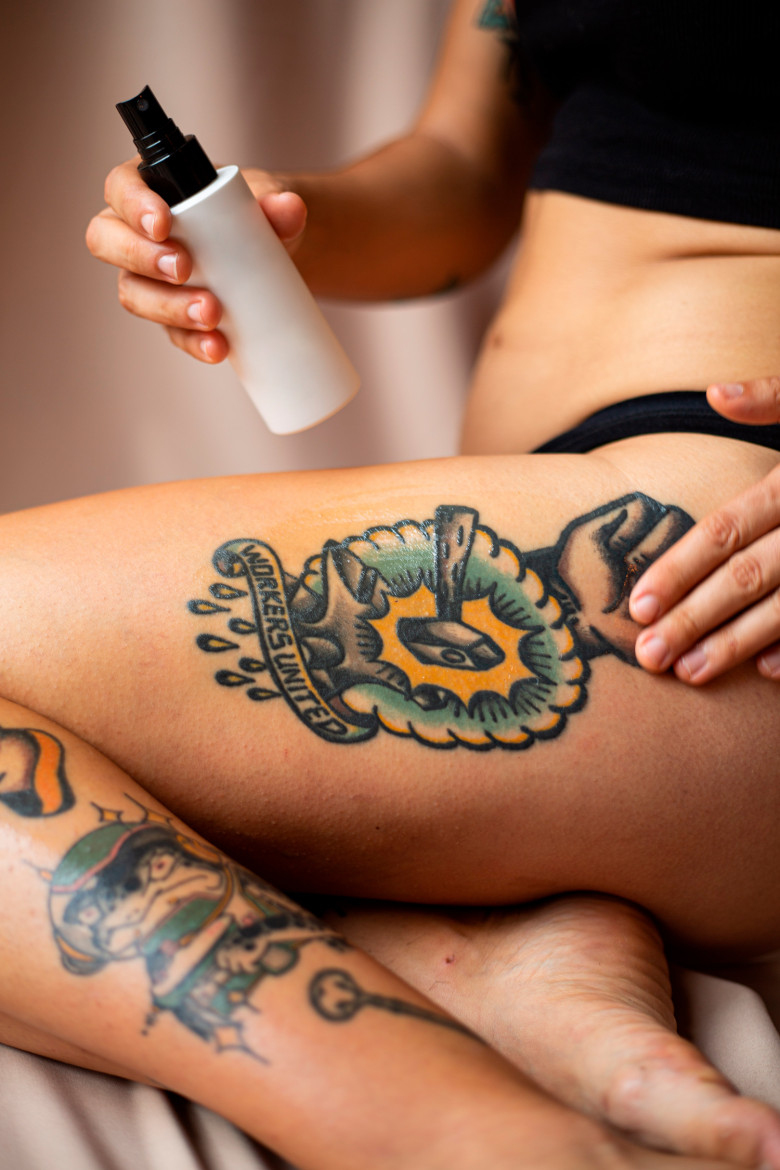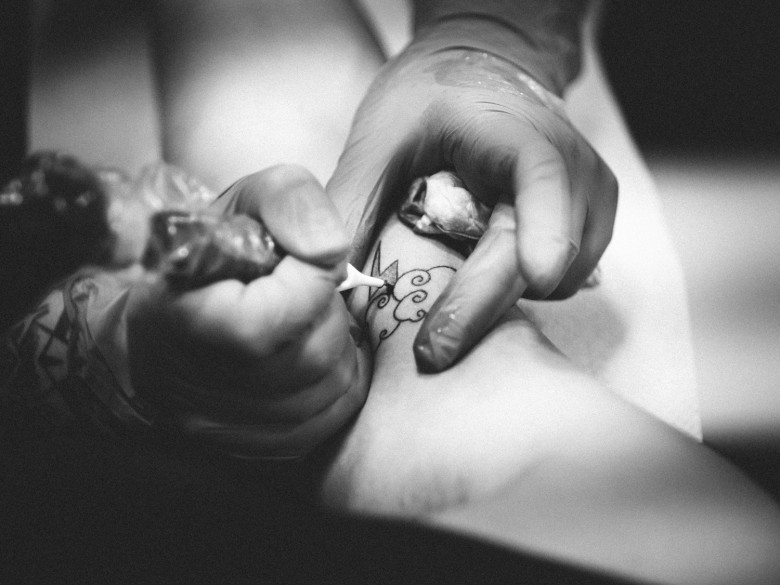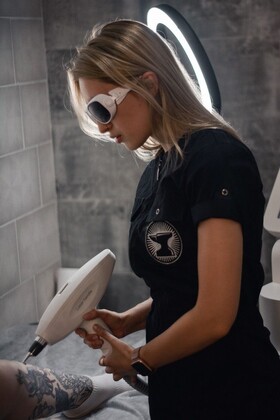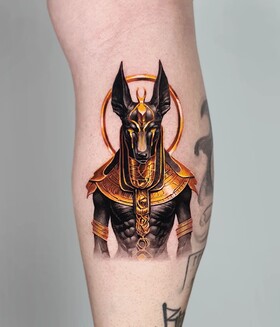Tattoo Allergy: Why It Occurs and What to Do?

Content:
Tattoos are a form of self-expression that attracts many people worldwide. They become symbols of individuality and often carry deep meaning for their owners. However, what happens when a tattoo triggers an allergic reaction? Why does this occur, and what measures can be taken? In this article, we will explore the causes of tattoo allergies and provide advice on how to deal with this issue.
What Is Tattoo Allergy?
АTattoo allergy is a rare but serious condition in which the body reacts to the pigments or other components contained in the inks used for tattooing as allergens. Symptoms can range from mild irritations to severe allergic reactions. Symptoms of a tattoo allergy may include:
- Itching and redness in the tattoo area.
- Swelling and pain.
- Rashes or bumps around the tattoo.
- Inflammation and skin peeling.
Among the more serious symptoms, there can be an increase in temperature, difficulty breathing, swelling of mucous membranes, and even throat swelling. If you experience such symptoms, seek immediate medical attention, as timely treatment of allergic reactions can prevent more serious complications.
It's important to remember that allergy symptoms may not only manifest as irritation on the tattoo. Allergic effects on the mucous membranes can lead to local inflammation, watery eyes, runny nose, and even allergic cough. Monitor your health and respond promptly to allergy symptoms.
Why Does Tattoo Allergy Occur?
There are several reasons why some people develop allergies to tattoos:
- Ingredients in Inks: Many allergic reactions are linked to ingredients found in tattoo inks. Allergens can vary, but more commonly, they include metals such as mercury, cadmium, chromium, and paraphenylenediamine, as well as various pigments and dyes used in red, yellow, purple, and even black ink.
- Individual Susceptibility: The level of allergenicity varies from person to person. Some may be more prone to allergic reactions than others.
- Ink Quality and Hygiene: Poor-quality inks or inadequate hygiene in the tattoo studio can contribute to allergic reactions.
Are Hypoallergenic Tattoo Pigments Available?
You've likely heard about such pigments. But what do they really entail? Generally, modern tattoo ink is carefully formulated with a safe composition, and cases of allergic reactions to it are extremely rare.
The composition of tattoo ink rules out heavy metals and toxic substances, and each ingredient undergoes rigorous testing. Professional manufacturers take compliance with all requirements seriously, so tattoo inks always have the necessary certificates and licenses.
What to Do if You Have a Tattoo Allergy?
If you suspect that you have developed a tattoo allergy, take the following steps:
- Do Not Scratch or Rub the Tattoo: This can worsen irritation and exacerbate symptoms.
- Consult a Doctor: If symptoms worsen or do not subside, be sure to see a doctor. A physician can diagnose the allergy and recommend treatment.
- Avoid Sunlight: Sunlight can intensify irritation and increase the risk of inflammation. Cover the tattoo with clothing or use hypoallergenic sunscreen.
- Adhere to the Treatment: A doctor may prescribe antihistamines and topical remedies to relieve symptoms.
- Consult with the Tattoo Artist: Inform your tattoo artist about the problem. They can warn other clients of similar issues and provide information about the inks used.

How to Prevent Tattoo Allergies?
The best way to avoid tattoo allergies is through prevention. Here are some measures to help you prevent this issue:
- Choose an Experienced Tattoo Artist and Verify the Studio: Ensure that the tattoo artist has a good reputation and adheres to all sanitary standards. This guarantees that the inks used are of high quality and safe.
- Clarify the Ink Composition: Ask the tattoo artist about the ink composition that will be used. If you know you're allergic to certain components, ensure they are not present.
- Conduct an Allergy Test: If you suspect you might be allergic to some ink components, perform a small skin test before getting a full tattoo.
- Follow Aftercare Instructions: After getting a tattoo, follow the recommendations of your tattoo artist for proper care. This will help prevent inflammation and irritation.
Tattoo allergies can be an unpleasant and unpredictable issue. However, with proper care and precaution before getting a tattoo, you can reduce the risk of developing an allergic reaction. If an allergy does occur, it's important to seek immediate medical attention and follow your doctor's recommendations. This way, you'll preserve the beauty and health of your skin and enjoy your tattoo for many years.







Comments (0)